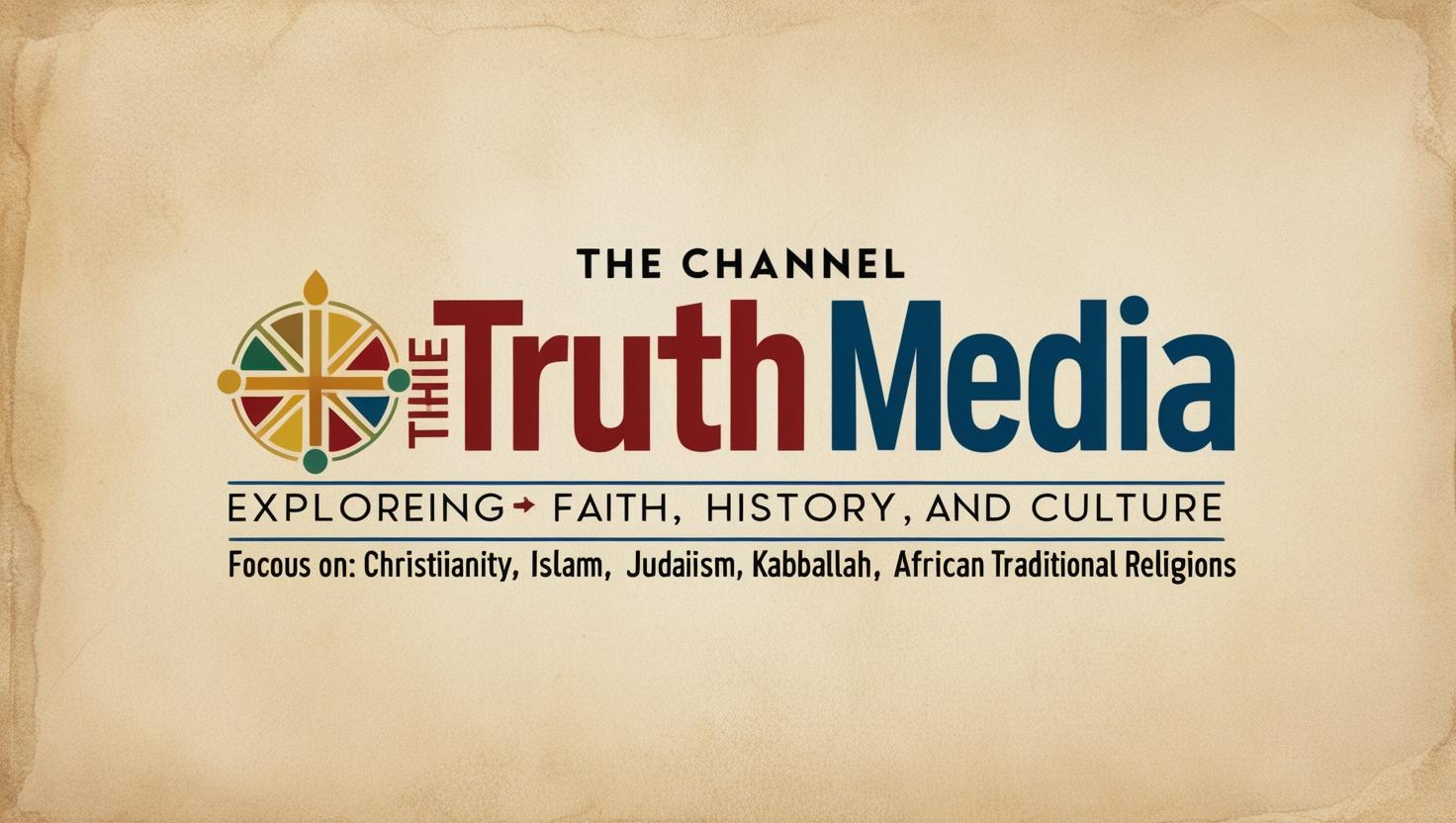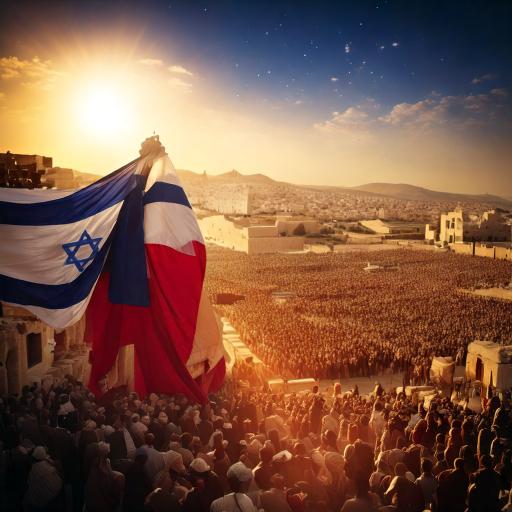The Israeli-Palestinian Conflict: A Deeply Religious Struggle for Land, Sovereignty, and Identity
Introduction
The Israeli-Palestinian conflict is one of the most complex and protracted conflicts in modern history. Rooted in deep religious, political, and historical issues, it has shaped the 20th and 21st centuries, drawing attention from nations and international organizations across the world. This conflict involves two peoples, the Jews and the Palestinians, who have both laid claim to the same land in the heart of the Middle East. Religion plays a central role in the conflict, influencing not only the political dimensions but also the deep cultural and emotional connections each group has to the land, particularly to the city of Jerusalem.
The roots of the Israeli-Palestinian conflict can be traced to the early 20th century, a period of profound political and social change in the Middle East. With the establishment of the State of Israel in 1948, the region was irrevocably altered, setting the stage for a series of wars, violent confrontations, and numerous attempts at peace. This article aims to explore the religious significance of the conflict, the historical background, the role of religion in shaping the conflict, and the ongoing struggles for land, sovereignty, and peace. We will examine the role of Jerusalem as a sacred site for Jews, Muslims, and Christians, as well as the influence of religious extremism on both sides of the conflict. Additionally, we will look at the impact of international actors, including the United Nations and the United States, in efforts to resolve the conflict.
Historical Context of the Conflict (Early 20th Century to Present)
The roots of the Israeli-Palestinian conflict lie in the late 19th and early 20th centuries, during the decline of the Ottoman Empire and the rise of nationalist movements in the Middle East. The Jewish nationalist movement, known as Zionism, emerged in Europe in the late 19th century with the goal of establishing a Jewish homeland in Palestine, a region then under Ottoman control. The idea was fueled by both the long-standing Jewish connection to the land of Israel and the persecution Jews faced in Europe, particularly in Eastern Europe.
At the same time, the Palestinian Arabs, who had lived in the region for centuries, began to develop their own sense of national identity. With the decline of the Ottoman Empire, Palestine came under British control following World War I, with the British Mandate for Palestine established in 1920. The Balfour Declaration of 1917, issued by the British government, expressed support for the establishment of a "national home for the Jewish people" in Palestine. This declaration, however, was met with resistance by the Arab population, who saw it as a threat to their own national aspirations.
As Jewish immigration to Palestine increased during the 1920s and 1930s, tensions between Jews and Arabs escalated. The Jewish community, supported by Zionist organizations, began to establish settlements and infrastructure in the land, while the Arab population feared the loss of their land and political power. Violent clashes between Jews and Arabs occurred periodically, with both sides suffering casualties.
The situation became even more complicated with the rise of Nazi Germany and the Holocaust in Europe. The genocide of six million Jews during World War II further galvanized the Zionist movement and increased international support for the establishment of a Jewish state in Palestine. In 1947, the United Nations voted to partition Palestine into separate Jewish and Arab states, with Jerusalem placed under international administration due to its religious significance. The Jewish leadership accepted the UN plan, but the Arab states rejected it, refusing to accept the legitimacy of a Jewish state in the region.
In 1948, following the end of the British Mandate, the State of Israel was declared, leading to the first Arab-Israeli war. The neighboring Arab states, including Egypt, Jordan, Syria, and Iraq, launched a military intervention in support of the Palestinian Arabs. The war resulted in an Israeli victory, and by its end, Israel controlled much of the territory allocated to the Jewish state under the UN partition plan. The war also led to the displacement of hundreds of thousands of Palestinian Arabs, who became refugees in neighboring countries.
The creation of Israel and the subsequent war marked the beginning of the ongoing Israeli-Palestinian conflict. The Palestinian refugee issue remains one of the most contentious aspects of the conflict, with millions of Palestinian refugees and their descendants living in camps in Lebanon, Jordan, Syria, and the Palestinian territories, seeking the right to return to their ancestral homes.
Religious Significance of Jerusalem
One of the key elements that makes the Israeli-Palestinian conflict so deeply entrenched is the religious significance of Jerusalem. Jerusalem is sacred to all three major Abrahamic faiths—Judaism, Islam, and Christianity. For Jews, Jerusalem is the site of the ancient Temple Mount, where the First and Second Temples once stood. The Western Wall, a remnant of the Second Temple, remains one of the holiest sites in Judaism. For Muslims, Jerusalem is the location of the Al-Aqsa Mosque, the third holiest site in Islam after Mecca and Medina. According to Islamic tradition, the Prophet Muhammad ascended to heaven from the Al-Aqsa Mosque during the Night Journey. For Christians, Jerusalem is the site of Jesus' crucifixion and resurrection, with the Church of the Holy Sepulchre marking the location of these pivotal events in Christian history.
The status of Jerusalem has been a central issue in the Israeli-Palestinian conflict since the establishment of Israel in 1948. Following the 1948 war, Jerusalem was divided into two parts: West Jerusalem, controlled by Israel, and East Jerusalem, which was annexed by Jordan. In 1967, during the Six-Day War, Israel captured East Jerusalem, including the Old City, and declared the entire city as its capital. This move has been rejected by the Palestinian leadership and the Arab world, which considers East Jerusalem to be the capital of a future Palestinian state.
The religious significance of Jerusalem makes it a flashpoint for tensions between Israelis and Palestinians, as both sides lay claim to the city. For Jews, the city's connection to their ancient history and religious identity is non-negotiable. For Palestinians, particularly Muslims, the Al-Aqsa Mosque and the wider Arab presence in Jerusalem are central to their national and religious identity. The status of Jerusalem remains one of the most contentious issues in any peace negotiations, with both sides unwilling to compromise on their claims to the city.
The Role of Religion in Fueling the Conflict
Religion has played a significant role in shaping the Israeli-Palestinian conflict, both as a source of identity and as a tool for mobilizing support. For many Israelis, the establishment of the State of Israel is seen as the fulfillment of a religious and historical promise, rooted in the Bible and the ancient connection of the Jewish people to the land of Israel. Religious Zionism, which combines the ideals of Zionism with Jewish religious beliefs, sees the return to the land as part of a divine plan.
On the Palestinian side, religion also plays a central role in shaping the conflict. Palestinian Muslims see the struggle against Israeli occupation as a religious duty, defending their holy sites and land from what they perceive as a foreign invasion. For Palestinian Christians, the struggle is both a religious and national one, as they seek to preserve their religious heritage in the land of Jesus' birth and to gain sovereignty over their ancestral land.
Religious extremism has also fueled violence on both sides of the conflict. On the Israeli side, the rise of religious nationalism has led to the establishment of settlements in the West Bank and East Jerusalem, which are seen as acts of religious fulfillment. On the Palestinian side, groups such as Hamas, which espouses a radical interpretation of Islam, have used religion to justify violence against Israelis and to reject peace negotiations. Religious extremism has made the prospects for peace even more challenging, as it deepens the ideological divide between the two sides.
Political Developments and Peace Efforts
Over the decades, numerous efforts have been made to resolve the Israeli-Palestinian conflict. The Oslo Accords, signed in the 1990s, were a significant milestone in the peace process, establishing a framework for a two-state solution and creating the Palestinian Authority. However, the failure to implement key provisions of the Oslo Accords, such as the establishment of a Palestinian state and the resolution of the status of Jerusalem, has led to a breakdown in the peace process.
The Second Intifada, a period of violent uprising in the early 2000s, further eroded trust between Israelis and Palestinians and led to a significant loss of life on both sides. Subsequent attempts at peace, including the Annapolis Conference in 2007 and the efforts of U.S. President Barack Obama in 2009, have also failed to achieve a lasting resolution.
The conflict continues to this day, with periodic escalations of violence, including wars in Gaza and clashes in Jerusalem. The situation remains fluid, with ongoing debates about the viability of a two-state solution, the status of Jerusalem, and the rights of Palestinian refugees.
The International Response
The international community has been deeply involved in the Israeli-Palestinian conflict, with the United Nations playing a key role in mediating peace efforts. The UN has passed numerous resolutions calling for the establishment of a Palestinian state and for Israel to withdraw from occupied territories, but these resolutions have often been ignored or vetoed by powerful countries, particularly the United States, which has been a strong ally of Israel.
The United States has played a crucial role in the peace process, with various administrations attempting to broker a deal between the Israelis and Palestinians. However, the U.S. has been criticized for its perceived bias toward Israel and its failure to apply pressure on Israel to make concessions on key issues, such as the status of Jerusalem and the expansion of settlements in the West Bank.
Regional actors, including Egypt, Jordan, and Saudi Arabia, have also been involved in the peace process, though their influence has been limited. The Arab League has called for a two-state solution, but divisions within the Arab world, particularly over the role of Hamas and the future of Gaza, have made it difficult to present a unified front.
Conclusion
The Israeli-Palestinian conflict is a deeply rooted struggle, shaped by a complex mix of religious, historical, and political factors. Religion has played a central role in the conflict, with Jerusalem serving as a focal point of religious and national identity for Jews, Muslims, and Christians. Despite numerous peace efforts, the conflict remains unresolved, with violence continuing to erupt periodically and no clear path to a lasting peace. The involvement of international powers, particularly the United States and the United Nations, has failed to bring about a final resolution, and the issue of sovereignty, refugees, and the status of Jerusalem remains at the heart of the conflict. The future of Israel and Palestine remains uncertain, and only time will tell if a peaceful resolution can be achieved.
References
- The Israeli-Palestinian Conflict: A History by James L. Gelvin
- Jerusalem: The Biography by Simon Sebag Montefiore
- The Ethnic Cleansing of Palestine by Ilan Pappe
- United Nations Security Council Resolutions on the Israeli-Palestinian Conflict
- The Oslo Accords: A Critical Assessment by Peter Beinart
- Hamas: A History from Within by Azzam Tamimi
- BBC News – Middle East section on the Israeli-Palestinian conflict
- The Question of Palestine by Edward W. Said
- Israel/Palestine by Neil Caplan

